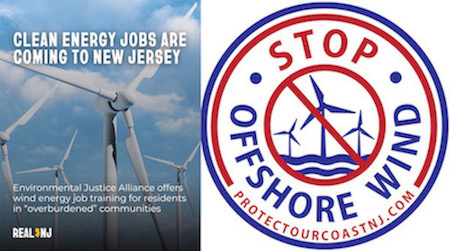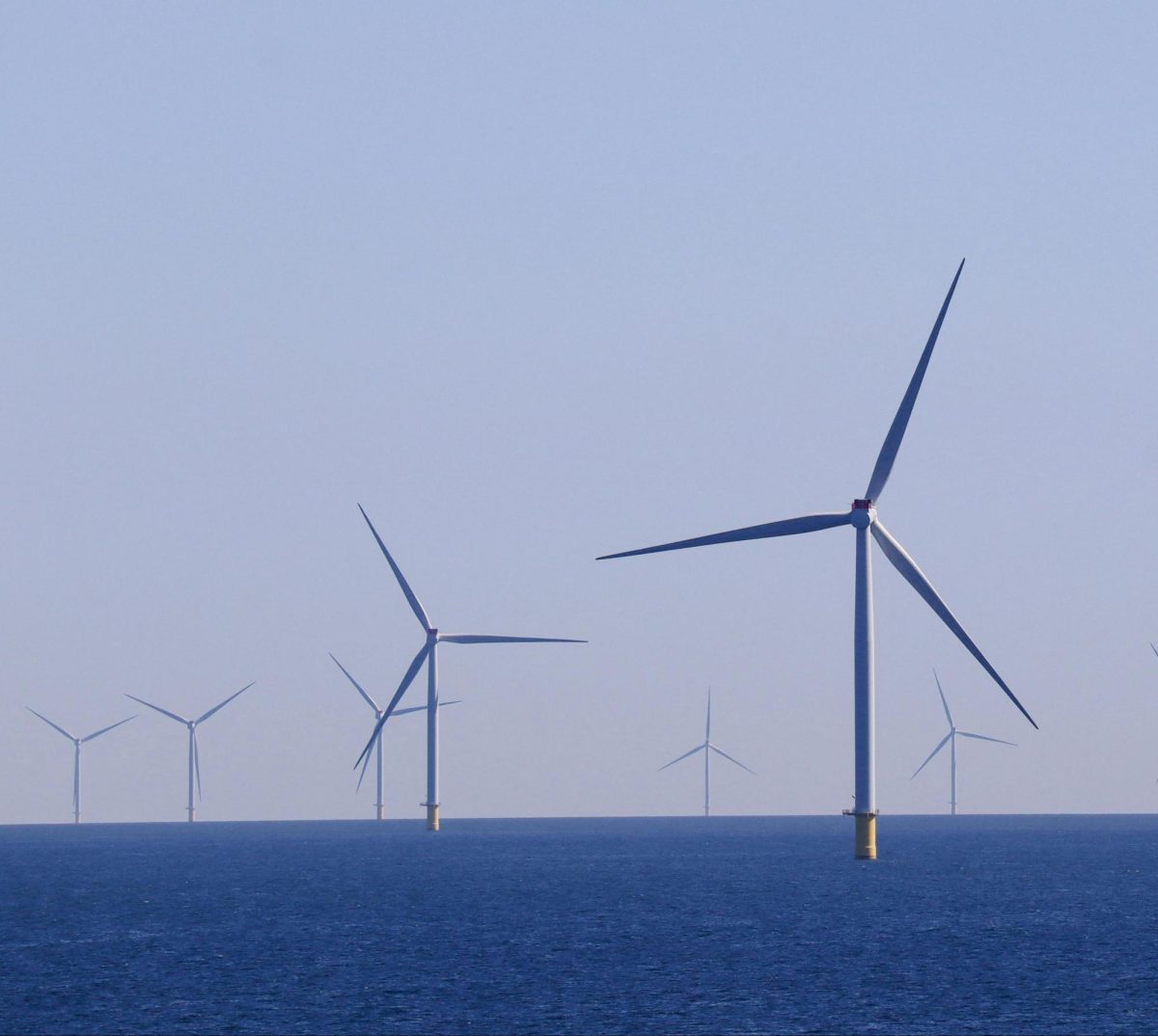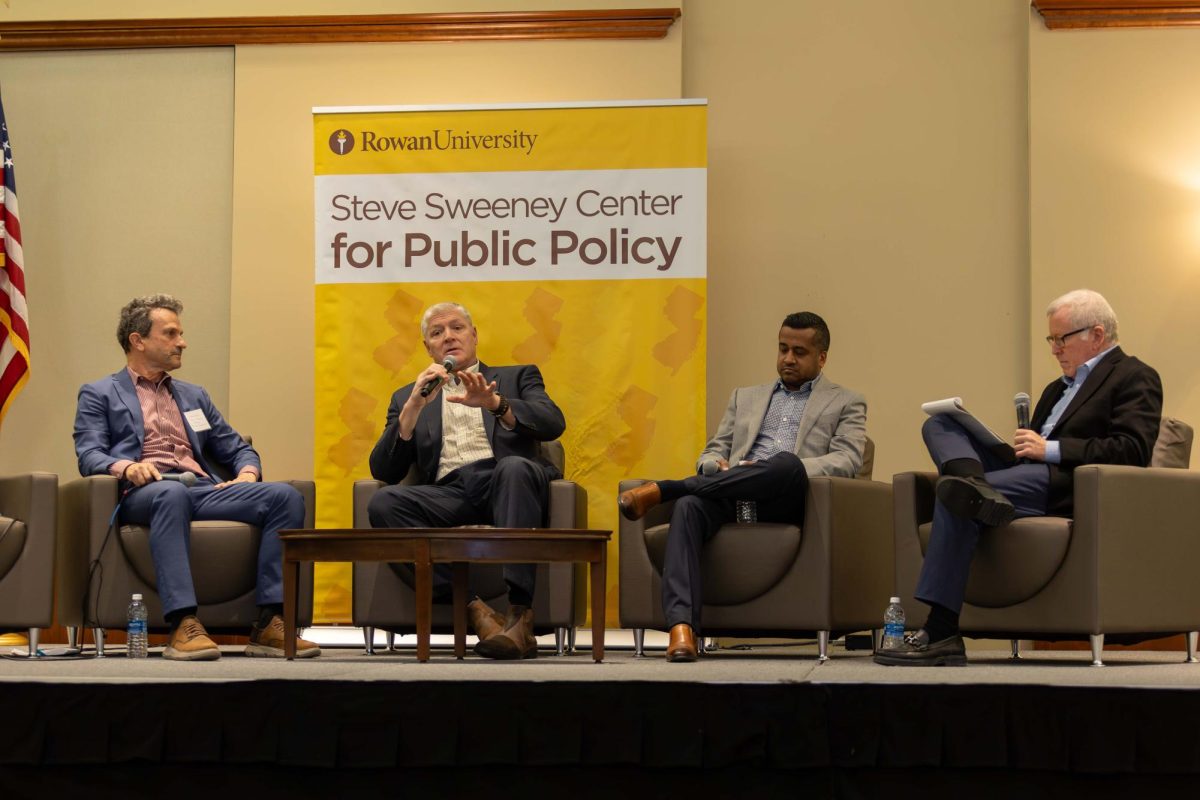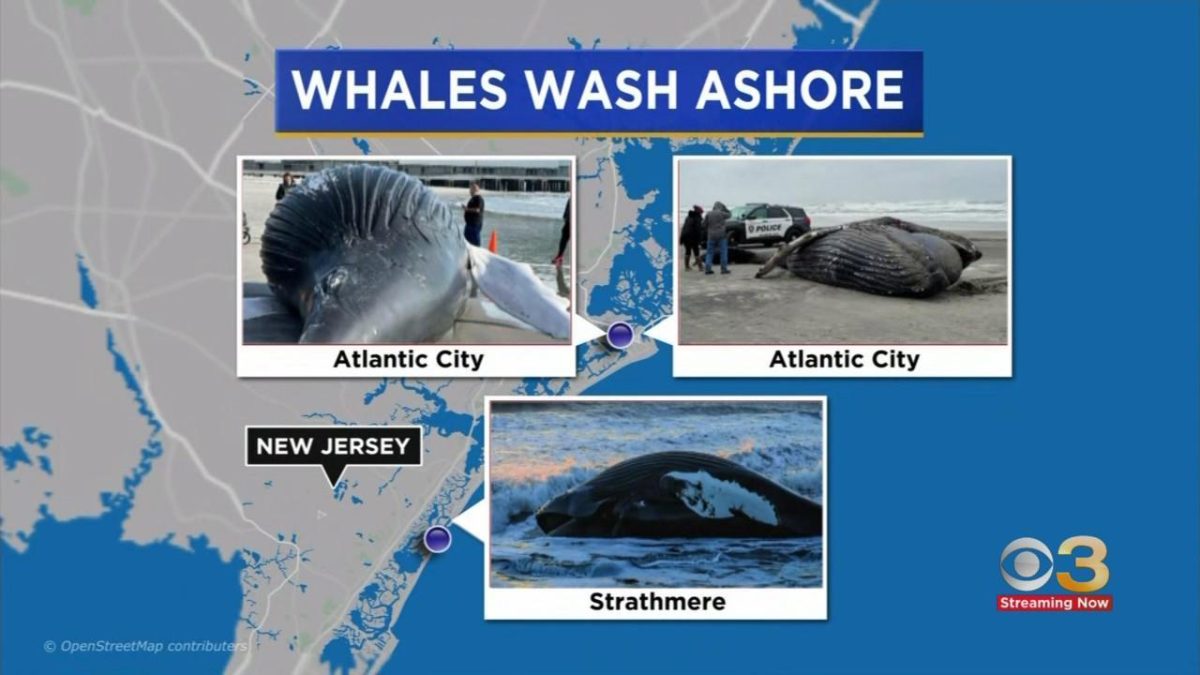Offshore wind power is one of the most divisive environmental issues in New Jersey.
Proponents argue offshore wind will provide clean electricity and jobs for thousands of residents. Opponents argue it will ruin ocean views, property values and tourism and claim it will harm marine life.
And whether New Jersey residents support or oppose offshore wind energy may have more to do with PR strategies than facts.
Dr. Alison Novak, an associate professor of Public Relations and Advertising at Rowan University, researches the communication strategies employed by organizations both for and against proposed offshore wind farms in New Jersey.
The following is an edited transcript of a recent conversation with Dr. Novak.
She explains why opponents of offshore wind are having more success in public messaging, what proponents might learn from the debate over nuclear power in the 1970s, and why people’s individual experiences with solar energy might turn them off to other renewable energy sources.

Q: Tell me about your research into offshore wind and public messaging.
Novak: I’m looking specifically at how people are becoming activists for and against offshore wind. So in the state of New Jersey, we have very active groups that are engaging local residents, businesses and politicians trying to get them to support offshore wind or to vocally oppose it. My goal is to look at how they are communicating, how successful they are at engaging, and then really evaluating how those plans are working.
And we know that based on polling in New Jersey, one side is having a lot more success.
Q: What have you found so far in your research on public opinion of energy alternatives?
Novak: The primary finding is that the opposition groups to offshore wind energy are a lot more coordinated.
They work with other groups, they partner, they get money from for-profit organizations and non-profit organizations. And they have very specific communication plans. For example, they say, “You’re gonna say this on this day. I’m going to say this on this day, we’re going to target this audience and use this message on them.”
That’s been really successful for them. That’s a traditional public relations technique. That’s working beautifully, just the way it should.
On the other side, the groups that support offshore wind energy do not have that type of coordination. There’s no one entity responsible for it. Because of that, we’re seeing a lot of messaging that isn’t totally complementary with each other. Or we see offices that say, “Oh, that’s not our job. That’s somebody else’s job, to do the communication.”
And because of that, in my opinion, that’s where a lot of their failures for proponents are coming from. The fact that they’re not coordinating very well, and they’re not using even basic research skills to target messages and segment audiences that we would normally see in a space like this.
So far, the anti-wind activists are just doing a much better job.
Q: So it’s partially a funding issue as well?
Novak: Yes. If you look at the websites that document donations that non-profit groups get, a lot of the anti-offshore wind groups get funded by organizations that are related to traditional energy like coal and oil.
It’s not as if Exxon is like cutting a check. But the executives from Exxon might be making donations, or some of the Exxon’s non-profit legs might be doing that. So it’s not as clear cut as saying they’re funded by traditional energy, but there are clear links between that money that’s coming in and the places that would have competition to offshore wind.
Offshore wind would take away the profits of those groups, so naturally they would want to fund groups that oppose it.
Q: I read that you got your students involved in this research. Can you tell me more about that? And what did your students learn?
Novak: Our senior capstone students in the spring developed a PR plan for the New Jersey Economic Development Authority, the group that is primarily responsible for encouraging the economic development around offshore wind in New Jersey. They’re supposed to get the business partners and get the local businesses excited about it. And when we started the project, we had a very specific goal: a semester-long project of just getting the local Jersey Shore communities excited about offshore wind.
And then about a month into the project, all of the whale deaths started getting publicity. So we ended up having to change our strategy to develop messaging that would disassociate the offshore wind developments with whale deaths, because there really has been no scientific link between those two things.
There’s a lot of evidence for other causes for the whale deaths. But the activists had been so successful at creating that link, that we tried to develop a PR plan that would combat that, or at least correct that misinformation.
And what was interesting about it is we pitched it at the end of the semester to the NJEDA and they were very receptive. But it was their opinion that they were not responsible for combating the offshore wind narratives about whale deaths.
They said, ‘You know, that’s somebody else’s job. We’re just the economic side of it.’ And we asked ‘“Who was supposed to be doing this?” There was no answer. They were supposed to do the economic side, and that’s where they were going to draw that boundary.
I thought it was a good opportunity for our students because you teach that in class. You teach that your client will come to you and you’ll find this other problem. And then at the end, the client may not want to actually address that. And we saw it play out in that semester.
Q: Is there any shift that you’re seeing in public perception of wind farms?
Novak: I think there’s been clear documented evidence of the decline of support in New Jersey of offshore wind. I think it matches national trends, but really, this is such a local issue.
I think it went from being something like 80% of New Jersey residents supported the idea of offshore wind to like, less than 50%. That’s huge. I mean, it’s a very successful campaign that the anti-wind activists have run. And what’s really interesting is they’ve had these sort of three messages that they’ve used about it that have really resonated with New Jersey residents.
The first is an argument that it’ll hurt property values. If you look out and you see the wind turbines, it’s going to hurt your property value. There’s some truth to that, that a property that doesn’t see wind turbines is probably going to be worth more than a property that does so, fair enough. That’s a good argument.
The second argument they make is about the whale deaths. And there is an increase in whale deaths in New Jersey. It’s clearly documented. But there’s two other scientifically supported reasons for that other than wind turbines. One is global warming. We know that there’s a projected growth that goes right alongside the increase of temperature of the sea, which is changing migration patterns.
The second is increased shipping. More boats means more whale collisions, that means more whale deaths, there’s less space for the whales to move.
The whale death argument has been very successful with residents of the state because whales are beloved. They’re gentle giants. They’re part of the iconic imagery of the Jersey Shore. People go on whale watching expeditions. They’re sympathetic creatures, and it’s very successful with people who have any type of animal love. That’s most people.
The third argument they make, which is like a really interesting one, is that the people of the Jersey Shore say that they didn’t want offshore wind. They’re fine with the energy sources that get electricity to their house currently. They argue that who really wants this is the state government in Trenton and frankly, President Biden. And so there’s this really interesting tension that’s happening between the local desires and the government stepping in and saying, “Sorry, your desires don’t matter. We’re doing this anyway.”
And that really aligns with other political messaging about what should be the primary focus of change in the country. Should it be what you as a citizen want? Or should your government be allowed to come in and say, “Actually, we know better”?
That’s a classic political tension we’ve had since the start of the country.
Q: Are there any other energy alternatives that have as active or aggressive opposition?
Novak: You can go into the 1970s and the activism against nuclear energy was very similar in style to what we see now. My dad was a nuclear engineer, and so I have memories of going with him to some of the sites and seeing protesters outside the cooling towers.
What’s really interesting about something like nuclear, which has a very similar history to offshore wind, is that today, the public opinion on nuclear power has really changed. People are largely supportive of it. Maybe they don’t want it in their backyard, but they are much more supportive than they ever were in the 1970s. And so I think it speaks to your earlier question that people can change, public opinion will certainly change around offshore wind.
I think something like solar energy is really interesting because it’s the most localized form of energy; it’s literally on your roof. There’s not many other times that you are physically interacting with an energy source like that.
Part of the problem with solar is there have been so many cases of people feeling that they were scammed by solar companies. Companies that come to your door and say, “We’ll put them on your roof for free and/or replace your roof.” And they get excited, then the company shuts down, or they don’t get the return on investment that they thought that they were gonna get. It’s costing them more or they break and they’re not usable anymore, and you’re unable to get them repaired.
There was a great podcast about this the other day, that documented how much opinion about renewable energy is informed by this negative experience people have about solar. I don’t have any evidence of this, but if your experience with renewable energy is solar in your own home, it might make you more likely to think offshore wind sounds like a scam too.
Q: What is your advice to the wind energy proponents?
Novak: I think coordination between pro-wind groups is critical. I’m talking a real, coordinated PR plan, based on research, based on audience segmentation, and developing strategies, carrying out tactics. I think that would go a long way.
But more than anything, I think that there’s a lot of the scientific community that needs to be able to speak up.
If you talk to the marine biologists, they’ll say, ‘Well, we really don’t know what’s causing the whale deaths because we don’t do autopsies of the whales.’ Okay, but if somebody’s saying that it’s the wind turbines and you’re saying it’s probably something else, but you can’t say with certainty, that is confusing for the public.
What we really need is for those marine biologists to be able to do the research and say, “Okay, with certainty I can dispel that. I have done the research, here’s the proof that I need to confidently speak and write now.”
We may not have the resources that fund that research, and we certainly don’t have the time to do it. That’s something that really will help quite a bit is when the scientific community has that evidence and has that time, so they can really speak up and dispel the misinformation that’s coming.
Q: Are you planning to publish your research?
Novak: I’m hoping to write a book on the subject. It’s about the activism around the issue. If you look at books on offshore wind right now, they’re all engineering books. There really is not much about the communication strategy around them.
It could be so impactful because when Orsted left New Jersey, they said it was a financial decision. But what they perceived as a financial loss was a lack of citizen interest and support. So you can claim that it’s financial, but the underlying cause is all about public opinion.
We need to talk about that. We need research on that because that could easily happen in another place. If we want this energy source to be successful, we have to have a public that supports it, that makes the financial incentives worth it for a company to come in and do all that investing to build it up.









Steve Lubetkin • Feb 27, 2024 at 12:17 pm
It seems strange to me that we are having a debate about the effectiveness of PR strategies regarding wind power that does not acknowledge that one side is using lies and misrepresentation about the whale deaths. The oil and gas industry think tanks funding the anti-wind power activists are again misrepresenting the facts about climate change, just as the tobacco industry misrepresented the risks of smoking a generation ago. Why can’t we simply say they are lying? Why do we couch the conversation in the mealy mouthed “both sides? comparison.
As a famous editor once remarked, “If one guy says it’s raining out, and the other says it’s sunny, it’s not your job to report what they both say, it’s your job to look out the f***ing window to see what the weather is.”
There is no scientific evidence linking whale deaths with any of the work currently being done on offshore wind. In fact, now that these oil and gas funded activists have chased Orsted out of the state, there isn’t ANY wind power work being done. So what will be their next lie about why the whales are dying?